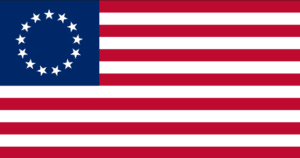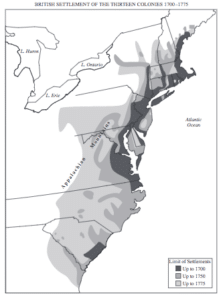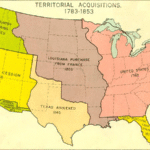Exploration and colonization can mean a lot of things in US History, from space exploration to the age of exploration. This blog post will give you a variety of AP US history questions that you are likely to see on the APUSH exam, including short answers, all around exploration and colonization. Keep reading if you want more practice for the APUSH exam in these areas!

But first, just what is exploration and colonization?
This blog post will not give an in-depth exploration of these topics. Rather, this blog post expects that you are proficient in your understanding of exploration and colonization as it relates to AP US History.
For this blog post and the questions I detail below, I will be describing the beginning of US History as it relates to the APUSH exam. I’m talking Chapter 1 stuff: everything from Enlightenment philosophers to economic policies. If you need an overview of these ideas, I suggest you read the posts I wrote on some of these topics: Salutary Neglect, Mercantilism, and John Locke, for starters.
Now that you have that understanding, let’s get into the most important part of this blog post: the questions themselves.
What kind of multiple choice AP US History questions will I see about exploration and colonization?
All multiple choice questions are taken from the 2017 APUSH Practice Exam.
Questions 1 and 2 refer to the excerpt below.
“Governments are instituted among Men, deriving their just powers from the consent of the governed. That whenever any Form of Government becomes destructive of these ends, it is the Right of the People to alter or to abolish it, and to institute new Government, laying its foundation on such principles and organizing its powers in such form, as to them shall seem most likely to effect their Safety and Happiness.”
Thomas Jefferson, Declaration of Independence, 1776
1. The excerpt was written in response to the
A. British government’s attempt to assert greater control over the North American colonies
B. British government’s failure to protect colonists from attacks by American Indians
C. colonial governments’ failures to implement mercantilist policies
D. colonial governments’ attempts to extend political rights to new groups
2. The ideas about government expressed in the excerpt are most consistent with which of the following?
A. The concept of hereditary rights and privileges
B. The belief in Manifest Destiny
C. The principle of religious freedom
D. The ideas of the Enlightenment
Questions 3-5 refer to the excerpt below.
“The colonizers brought along plants and animals new to the Americas, some by design and others by accident. Determined to farm in a European manner, the colonists introduced their domesticated livestock—honeybees, pigs, horses, mules, sheep, and cattle—and their domesticated plants, including wheat, barley, rye, oats, grasses, and grapevines. But the colonists also inadvertently carried pathogens, weeds, and rats. . . .In sum, the remaking of the Americas was a team effort by a set of interdependent species led and partially managed (but never fully controlled) by European people.”
Alan Taylor, historian, American Colonies, 2001
3. The export of New World crops to the Old World transformed European society mostly by
A. improving diets and thereby stimulating population growth
B. encouraging enclosure of open lands and pushing workers off of farms
C. promoting greater exploration of the interior of the American continents
D. fostering conflicts among major powers over access to new food supplies
4. The patterns described in the excerpt most directly foreshadowed which of the following developments?
A. The spread of maize cultivation northward from present-day Mexico into the American Southwest
B. The population decline in Native American societies
C. The gradual shift of European economies from feudalism to capitalism
D. The emergence of racially mixed populations in the Americas
5. The trends described by Taylor most directly illustrate which of the following major historical developments in the Atlantic world?
A. The growth of mercantile empires that stretched across the Atlantic
B. The increasing anglicization of the English colonies
C. The phenomenon known as the Columbian Exchange
D. The rise of the trans-Atlantic slave trade
Questions 6-9 refer to the map below, of the British settlement of the thirteen colonies. You can also check out the larger version on page 16 of the Practice Exam.

6. The map most directly depicts the
A. inland expansion of the colonial population
B. effects of industrialization
C. pattern of American Indian resistance
D. decline of tobacco production
7. The pattern of colonial settlement up to 1700 resulted most directly from which of the following factors?
A. The large size of British colonial populations relative to American Indian populations
B. British recognition of Native American sovereignty
C. The orientation of the British colonies toward producing commodities for export to Europe
D. British government attempts to impose greater control over the colonies in the late 1600s
8. The change in settlement patterns from 1700 to 1775 had which of the following effects?
A. A decrease in the coastal population
B. An increase in conflicts between British settlers and American Indians
C. A decrease in the economic importance of slavery and other forms of coerced labor
D. An increase in trade with French Canada
9. The change in settlement patterns from 1700 to 1775 best explains the
A. development of economic differences between the northern and southern colonies
B. colonists’ difficulties in effectively resisting the British military during the American Revolution
C. significant proportion of colonists who remained loyal to Great Britain during the American Revolution
D. growth of social tensions between backcountry settlers and coastal elites
Correct Answers: Multiple Choice
1. A
2. D
3. A
4. B
5. C
6. A
7. C
8. B
9. D
What kind of short answer AP US History questions will I see about exploration and colonization?
“King George III has waged cruel war against human Nature itself. He has taken away the most sacred rights of Life and Liberty from a distant people who never offended him. He did this by captivating and carrying them into slavery in another hemisphere if they did not die a miserable
death in their transportation to this new world. These disgraceful practices are the Warfare of the Christian King of Great Britain. He has stopped every attempt to prohibit or to restrain the disgusting business of slavery. He is determined to keep open a market where men are bought and sold.”
Excerpt from Thomas Jefferson’s Slavery Grievance in the first draft of the Declaration of Independence
Answer (a), (b), and (c).
(a) Explain ONE historical reason why Thomas Jefferson originally included this excerpt in the Declaration of Independence.
(b) Explain ONE historical reason why Thomas Jefferson eventually excluded this excerpt from the final Declaration of Independence.
(c) Explain ONE event from history that contradicts the views that Thomas Jefferson presents in this grievance.
Possible Responses: Short Answer
(a) The revolutionary spirit of the time was likely a reason for Jefferson to include this grievance in the Declaration of Independence. Although Jefferson owned slaves himself, his personal papers show the conflicts that he had internally about slavery. Still, he never freed his own slaves during his lifetime.
(b) Jefferson likely removed this grievance because of the political rift it caused for the fledgling country; the Southern states would never agree to drop the slave trade and did not appreciate abolition being a condition of independence.
(c) Although Jefferson chastises the King for being (supposedly) Christian and supporting the slave trade, many Christians in the United States used Christianity as a foundation for slavery. In fact, Great Britain would abolish slavery before the United States would.



Leave a Reply